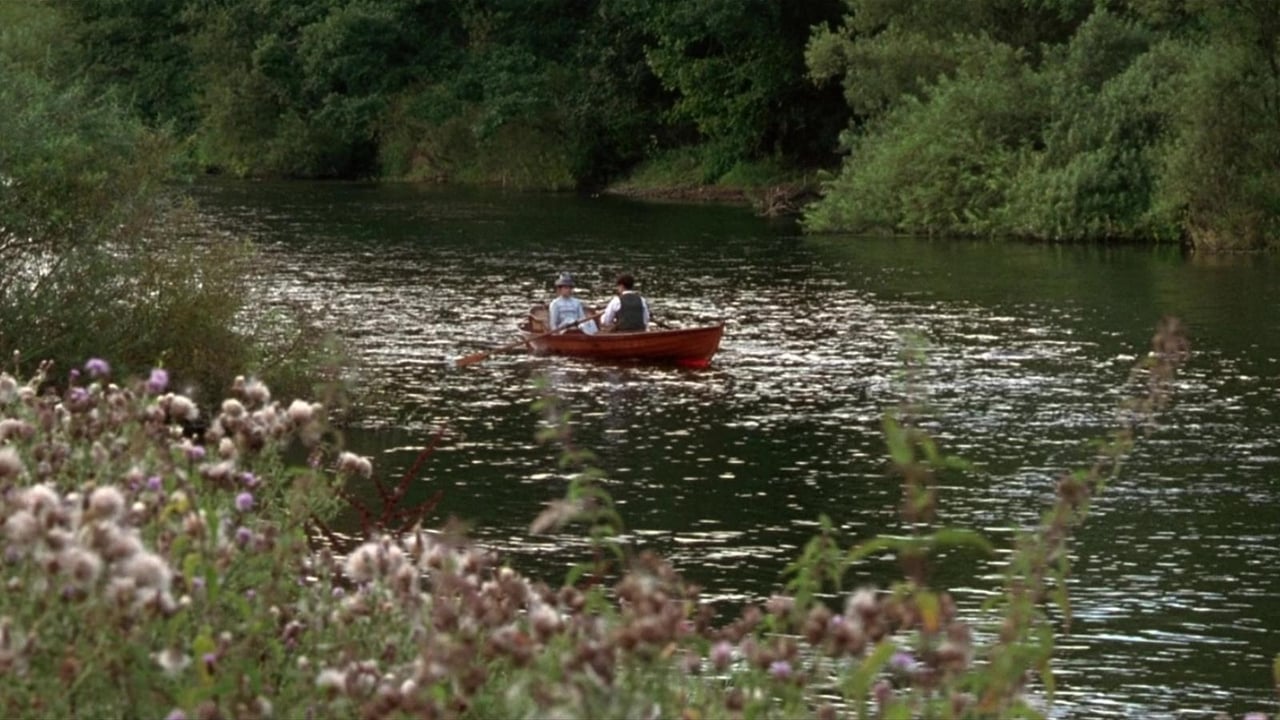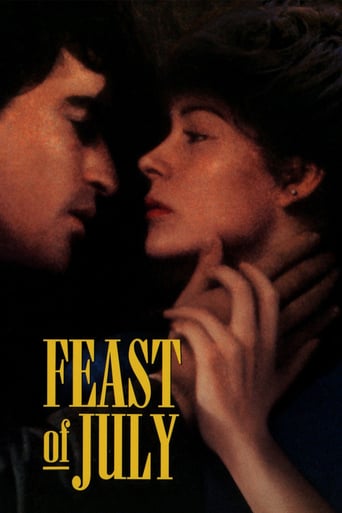



Good , But It Is Overrated By Some
A Major Disappointment
It is not only a funny movie, but it allows a great amount of joy for anyone who watches it.
View MoreThis movie feels like it was made purely to piss off people who want good shows
View MoreH E Bates is an author whose reputation has declined somewhat in recent years. During his lifetime, and for about two decades after his death in 1974, he was one of the most popular authors in Britain. Interest in him reached a peak in the early 1990s when his "Larkin Family" novels were serialised on television as "The Darling Buds of May". In my view, those are far from being his best works, but the series was a huge success, tapping as it did into a vein of rural nostalgia and introducing to public view Catherine Zeta Jones, the most beautiful young actress that Britain had produced for many years. Since then, however, that interest has declined and, apart from the Larkin books and one or two wartime stories, his works are now largely out of print."The Feast of July" is one of those neglected works. Its setting is a small town in Northamptonshire during the late nineteenth century. The mood, however, is not one of nostalgia. Like Hardy's "Tess of the d'Urbervilles", the book deals with a young unmarried mother who is abandoned by her seducer and whose child dies in infancy. While searching for her lover, the heroine, Bella Ford, arrives as a homeless and friendless stranger in town, where she is rescued and befriended by Ben Wainwright, a shoemaker, and his family. (Shoemaking is the principal industry of the area). Bella is welcomed into the family and becomes like a daughter to them. Ben and his wife have three sons, and, after brief dalliances with two of the boys, she eventually finds love with the third, Con. The climax of the novel comes on the Feast of July, a traditional festival in the area, celebrating the first crops of the new season. (Although the film kept Bates' title, the importance of the Feast is never explained, so the title might seem baffling to those who have not read the book). Bella's lover Arch Wilson reappears in her life, provoking a confrontation that ends tragically. There had been no feature films based on Bates' writings since "Dulcima" and "The Triple Echo" in the early seventies, but there were two in 1995, doubtless inspired by the success of "The Darling Buds ". I have never seen "A Month by the Lake", but I cannot say that the film version of "The Feast of July" does justice to the original novel, which is a fine piece of writing. Bates had a deep love of the countryside and his novels, whether set in his native East Midlands or in Kent, where he lived in later life, are characterised by a strong sense of place and by remarkable powers of description. In "The Feast of July" and many of his other novels, the beauty of nature in its changing moods is described with lyrical intensity. To make a successful film adaptation of this novel, the director needed to find a visual equivalent to Bates' lyrical prose style, but this is something which Christopher Menaul failed to do. There is no sense of place; references to Salisbury and standard rustic Mummerset accents suggest that the film takes place in Wiltshire, but the hilly landscape we see bears little resemblance to that county (and even less to the flat agricultural scenery of Northamptonshire). Nor is there any sense of visual beauty; Menaul clearly thought that a tragic story needed to be told in a sombre manner, so the photography is dull and muted and the predominant colours are greys and browns. (Bates, however, deliberately set the climax of his story in midsummer because he wanted to increase the poignancy of his tragic love-triangle by contrasting it with the splendours of the natural setting). The other great virtue of Bates' novel is the urgency with which he develops his story, giving an impression of events rushing to a headlong climax and making the culminating tragedy seem all the more terrible and inevitable. This is another quality which goes missing in the film, which is slow-moving compared to the novel. The ending of the film, which is not the same as the one Bates wrote, seemed particularly drawn out. It is unfortunate that the film omits some of the book's good qualities, but keeps its flawed structure. Bates never really resolved the tension between the first half of the novel, in which the main theme is sibling rivalry between the three brothers, and the second, in which the main theme is the Bella/Con/Arch triangle. The film never resolves this either, so we are led to believe- wrongly- that it is the rivalry between the brothers that will lead to tragedy, especially after Con and Jedd come to blows over Bella. The acting is rather dull; Nastassia Kinski's performance in Polanski's "Tess" remains vividly in my mind, even though it is many years since I last saw that film, whereas, although I saw "The Feast of July" only a few days ago, about the only thing I remember about Embeth Davidtz is her oddly spelled name. (Is that a name or a losing hand at Scrabble?) Bella (like Tess) is a difficult part to play- on the one hand she is a tragic victim, on the other she must be fascinating enough to captivate several men. Ms Davidtz never convinced either as a tragic heroine or as a femme fatale. None of the other characters made much impression, except perhaps Gemma Jones as the sharp-tongued Mrs Wainwright. This is not a film which will do much to restore Bates' reputation. 4/10
View More"Feast..." is a well crafted, somewhat staged and romanticized drama about a woman, Bella (Davidtz), who wanders into the lives of a 19th century agrarian English family with 3 adult sons changing their lives forever. The film offers good performances by all, represents rural life of the time well, is artfully presented, and avoids extreme excursions giving the film a sort of perfect Disney-esque feel. Davidtz graces the screen throughout though Chaplin offers perhaps the best performance. A good watch for those in need of some easy-going romantic period drama.
View MoreSunday afternoon, I was flipping channels...looking for something new to watch...since I'd watched Wyatt Earp about 3 times that day. I stumble across this nice story. This girl is living with a family of three brothers and she seems to have a secret to hide. I recognize Ben Chaplin from The Truth About Cats and Dogs and I say let me watch the rest of this. He's kind of quiet and sweet and slow. Next, he's going to marry this girl after it seemed like she might end up with one of the other brothers...since Con (Ben C.) is so, well, interesting. Before they get married, he's slamming a rock into the head of a guy Bella (the girl) used to know way back in another town. I thought this was going to be a sweet story with a guy who probably wouldn't get the girl nowadays...getting the girl!!!! I was really p.o.'ed when he turned into a killer!!!!!!!! But I suppose throughout the film, we did get a glimpse of his violent tendency developing into a semi-insanity. Overall, I liked this movie because it was really intriguing and held my interest..which isn't necessarily difficult to do. Later on I watched it from the beginning to the end and decided that I do like the movie. Ben Chaplin is an excellent stutterer!!!!!
View MoreBeautiful scenery and details, authentic costumes and language. After six viewings, Ben Chaplin still lights up the screen.
View More